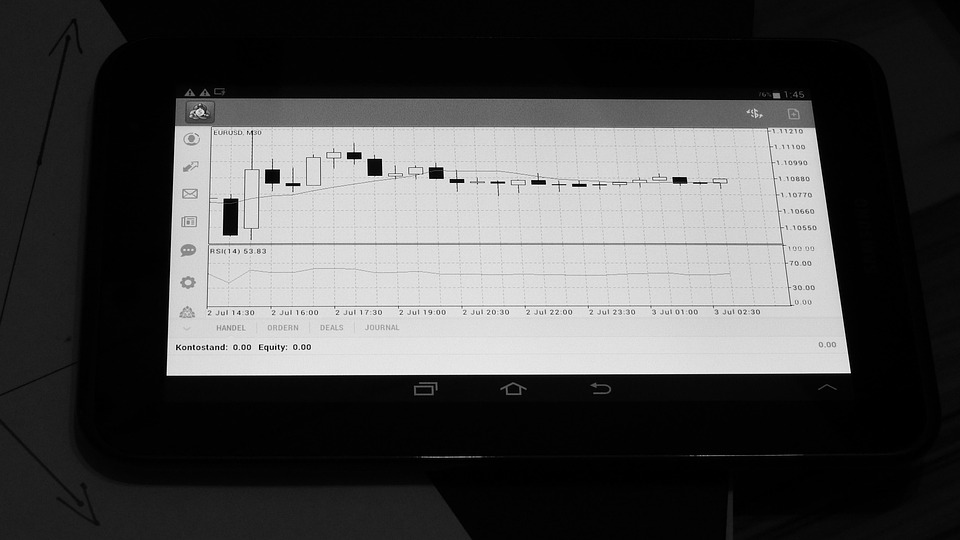Unlocking Digital Success: Mastering SEO and Google Analytics Fundamentals
In today’s hyper-competitive digital ecosystem, merely having a website isn’t enough. If you’re invisible to search engines, you’re invisible to potential customers. This is where Search Engine Optimization (SEO) and Google Analytics form an indispensable power duo. Together, they transform guesswork into actionable strategy, driving targeted traffic and sustainable growth. As specialists navigating Google’s ever-evolving algorithms daily, we break down these critical disciplines into actionable insights.
Why SEO Isn’t Optional (It’s Foundational)
SEO is the scientific art of aligning your website’s content, structure, and authority signals with search engine requirements. The goal? Achieve prominent rankings for keywords relevant to your audience. Forget “tricks”; modern SEO rests on three pillars:
-
Technical SEO: The infrastructure.
- Crawlability & Indexing: Ensure search engines like Google can efficiently discover and catalog your pages (robots.txt, sitemaps).
- Site Speed & Performance: Google penalizes slow sites. Tools like PageSpeed Insights are essential.
- Mobile-First Indexing: Your site must provide an exceptional experience on smartphones.
- Structured Data (Schema Markup): Helps search engines understand content context, potentially unlocking rich snippets in results.
-
On-Page SEO: Optimizing individual pages.
- Keyword Intent: Move beyond just inserting keywords. Align content with the user’s purpose (informational, navigational, commercial, transactional).
- Content Quality & Depth: Provide comprehensive, original answers that truly satisfy user queries (E-A-T focus!).
- Title Tags & Meta Descriptions: Compelling summaries influencing click-through rates.
- Header Structure (H1-H6): Organize content logically for users and crawlers.
- Internal Linking: Guide users and spread page authority throughout your site.
-
Off-Page SEO: Building credibility signals beyond your site.
- Backlink Profile: Earn high-quality links from authoritative, relevant sites (e.g., industry publications). Avoid spam tactics.
- Brand Mentions & Citations: Unlinked mentions still signal brand relevance.
- Local SEO Signals (For Local Businesses): Google Business Profile accuracy, reviews, local citations.
Google Analytics: The Engine Room of Insight
SEO tells search engines your value; Google Analytics (GA) tells you how users perceive and interact with that value. Without GA, you’re flying blind.
-
Why GA is Non-Negotiable for SEO:
- Traffic Source Intelligence: Precisely identify how users find you (organic search, social, paid ads, direct, referral). Measure the true ROI of SEO efforts.
- User Behavior Analysis: See what happens after the click. Which pages engage? Where do users drop off?
- Performance Benchmarking: Track progress over time (sessions, users, bounce rate).
- Conversion Tracking: Link SEO traffic directly to business outcomes (sales, sign-ups, downloads).
-
Essential GA Reports for SEO Success:
- Acquisition > Overview > Organic Search: Measure the volume and quality of your organic traffic. Drill down into keywords (provided search terms remain obscured, focus on landing pages).
- Behavior > Site Content > Landing Pages: Identify your top-performing organic landing pages. Analyze bounce rate, time on page, and conversion rates.
- Behavior > Behavior Flow: Visualize user paths through your site. Discover navigation bottlenecks.
- Audience > Overview & Geo: Understand who your organic visitors are (demographics, location, device) for targeted content creation.
- Conversions > Goals: Define key actions (e.g., “Contact Form Submission”) and track how organic traffic contributes to these conversions. Set these up early!
-
Setting Up GA for SEO Mastery:
- Install Correctly: Use the latest GA4 property. Ensure the tag is present on every page.
- Link GA & Google Search Console (GSC): This crucial integration provides richer keyword data (top queries, impressions, click-through rates) directly within GA’s “Search Console” reports.
- Define Goals: What actions equal success for your business? Configure these in GA.
- Apply Filters: Exclude internal company IP addresses to prevent skewing data.
Synergy is Key: Integrating SEO & GA Insights
The magic happens when you connect the dots:
- From GA → SEO Strategy: Analyze landing page performance in GA. High bounce rates? Investigate technical issues, content relevance, or page load speed. Spot pages with high exit rates? Improve internal linking or calls to action.
- From GSC Keywords → GA Content: Identify high-impression/low-click keywords in Search Console. Create or optimize content specifically targeting those opportunities.
- Monitoring Performance: Track organic traffic trends (GA) alongside keyword ranking movements (using dedicated rank tracking tools). Correlate SEO campaign launches with traffic/conversion uplifts.
- Proving ROI: Use GA conversion reports to attribute value (sales, leads) directly to your organic traffic channel, demonstrating tangible SEO results.
Conclusion: Building a Sustainable Digital Presence
SEO and Google Analytics are not isolated tactics; they are the bedrock of a data-driven digital strategy. SEO ensures your valuable content reaches the right audience at the precise moment of their search intent. Google Analytics illuminates the path visitors take, revealing what resonates, what converts, and where opportunities lie. Mastering these fundamentals removes reliance on intuition and replaces it with evidence-based decision-making.
In an era where Google prioritizes Experience, Expertise, Authoritativeness, and Trustworthiness (E-A-T), focusing on genuine user value, backed by solid technical foundations and measured through meticulous analytics, is the ultimate competitive advantage. Start by auditing your technical health, crafting deep-resource content aligned with user intent, and configuring GA to illuminate your path forward. Continuous monitoring and adaptation are essential – but the foundation of understanding SEO and GA basics positions you for lasting success.
Frequently Asked Questions (FAQs)
Q1: How long does it take to see results from SEO?
A: SEO is a long-term investment. Minor technical fixes might show impact in weeks, but significant organic traffic growth, especially competitive keywords, typically takes 4-12 months of consistent effort. Patience and persistence are key.
Q2: Is technical SEO really that important if I have great content?
A: Absolutely. Search engines need to crawl, index, and understand your content efficiently. Flawed technical foundations prevent even excellent content from being found, ranked, or providing a good user experience (a major ranking factor).
Q3: What’s the single most important SEO factor?
A: There is no single “silver bullet.” However, content relevance and user satisfaction (addressing search intent comprehensively with high E-A-T) are paramount. Combined with technical crawlability, they form the core of modern ranking signals.
Q4: Is Google Analytics free?
A: Yes, Google Analytics offers a robust free version (GA4) sufficient for most small and medium-sized businesses. A paid version (GA4 360) exists for enterprises with very high traffic volumes and complex needs.
Q5: What’s the difference between Google Analytics and Google Search Console?
A: Google Analytics tracks user behavior on your website (sessions, bounce rate, conversions). Google Search Console (GSC) monitors your site’s performance in Google Search (indexing status, search queries, impressions, crawl errors). They are complementary and provide a complete picture when linked.
Q6: What is a “good” bounce rate?
A: It varies drastically by industry, page type, and goal. A 70% bounce rate might be normal for a blog article but terrible for a checkout page. Focus on trends. Is it increasing? How does it compare to industry benchmarks? More importantly, pair it with conversion rates.
Q7: How often should I check my SEO and analytics data?
A: Daily/Weekly: Check for critical technical errors (via GSC/GA alerts) and traffic anomalies. Monthly: Conduct deeper analysis of traffic sources, keyword performance (via GSC), landing page effectiveness, and conversion trends. Quarterly/Annually: Perform comprehensive SEO audits and strategic planning reviews.
Q8: Can I do SEO without Google Analytics?
A: Technically yes, but it’s highly inefficient. Without GA, you lack crucial data on how users find and interact with your site, making it impossible to measure ROI or effectively optimize your strategy. GA is fundamental to informed SEO decision-making.





